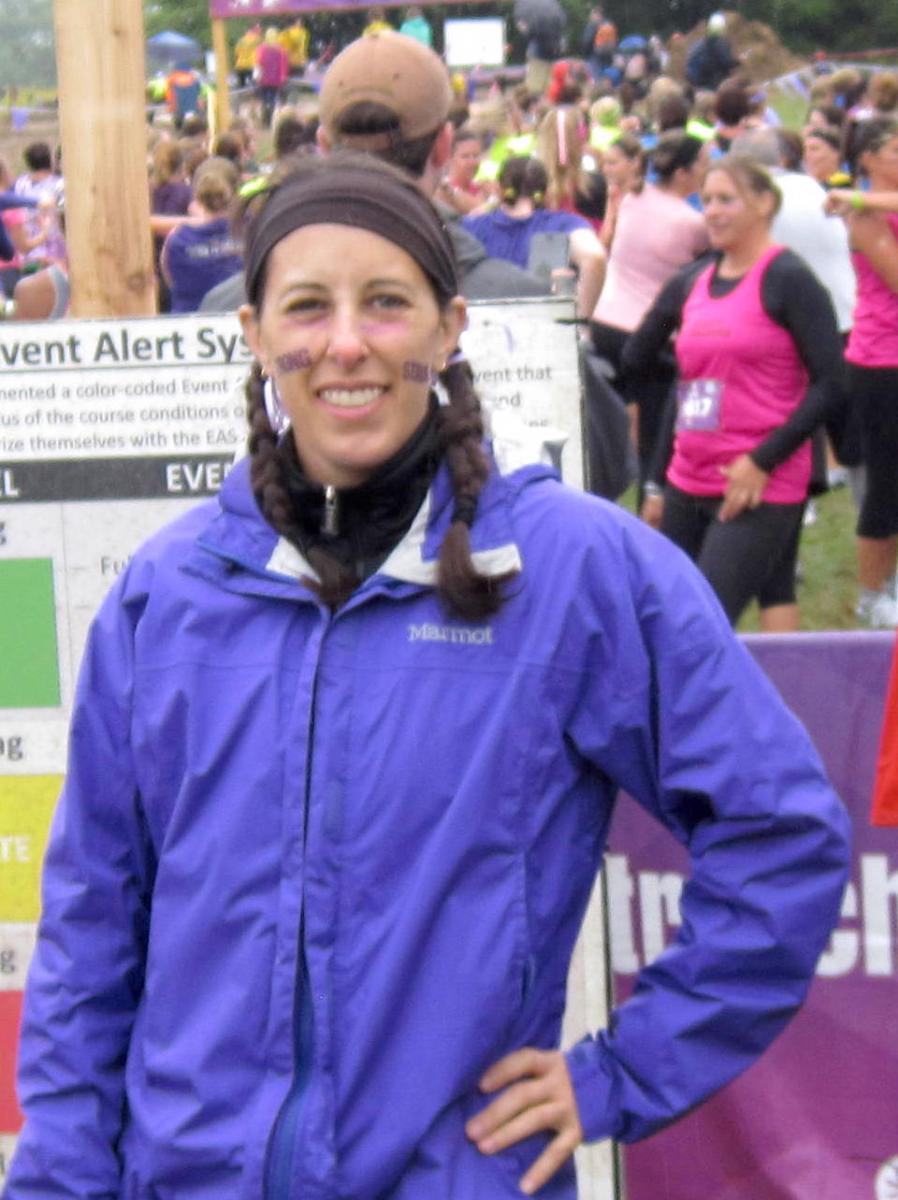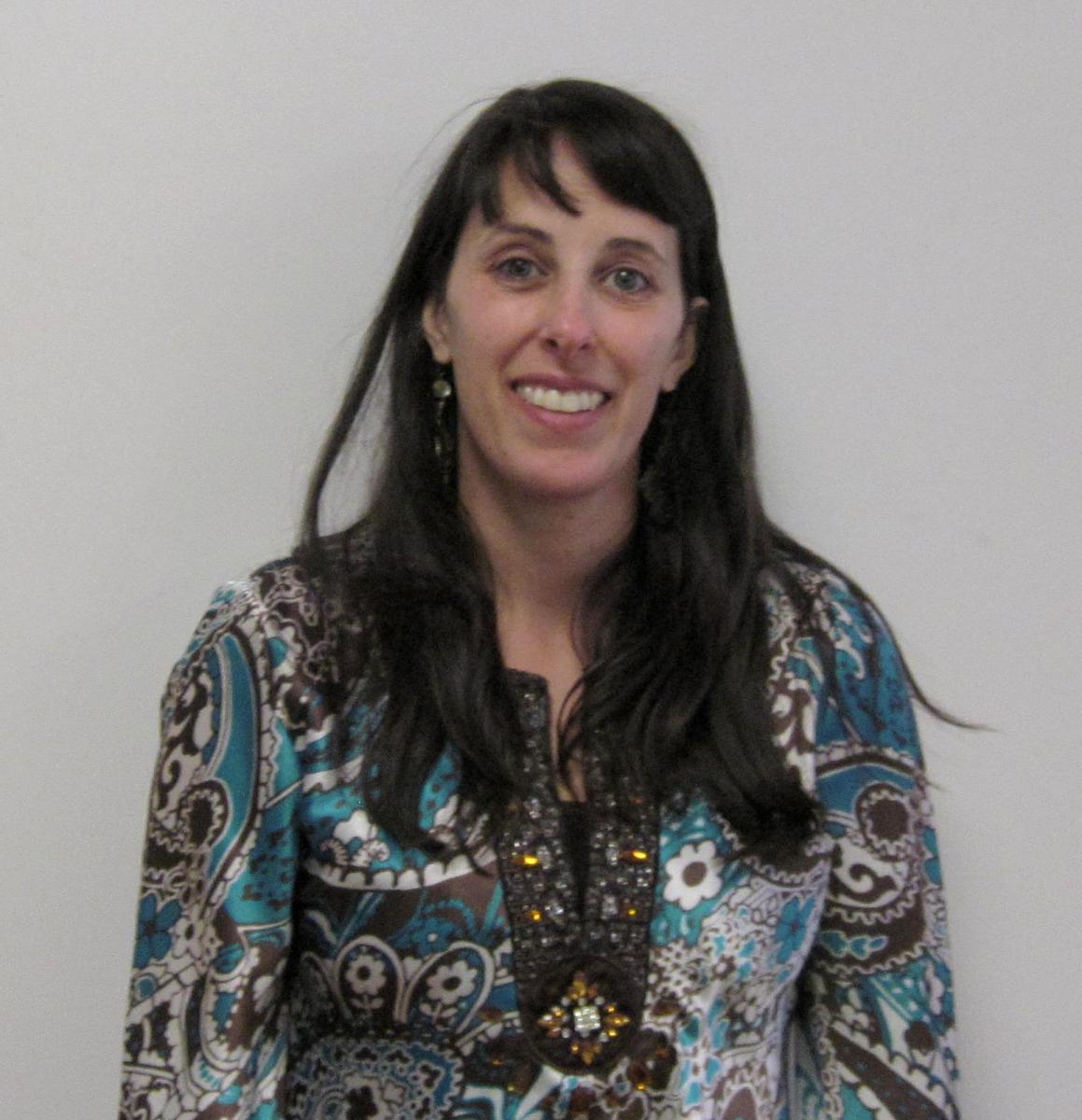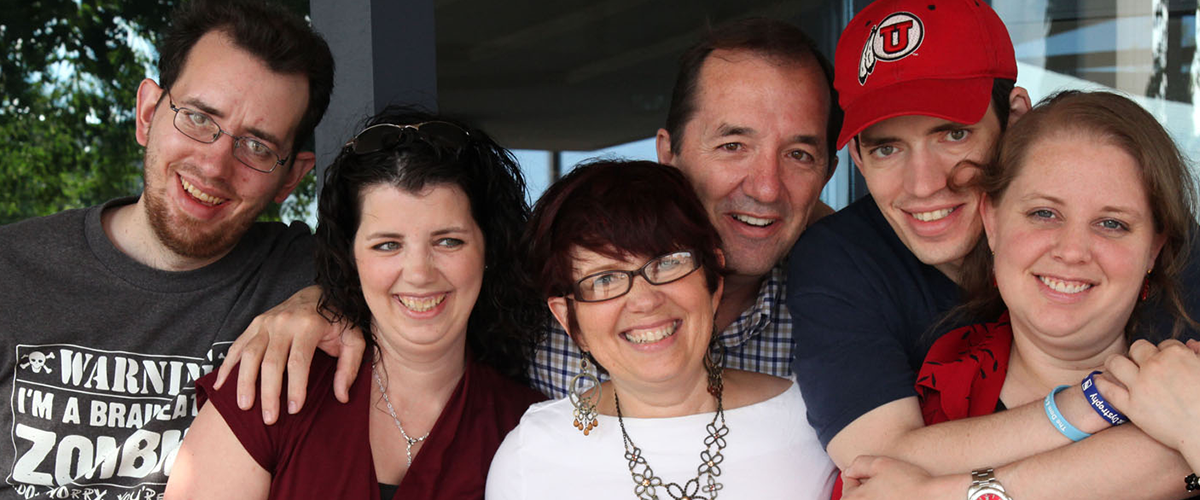
Christina has been in several DM studies. “I first got involved in a study because of my dad, he asked me to get involved,” says Christina Sterck, a 39-year-old middle school science teacher in Elkins, W. Va. “Now I’m doing it because I’m a science teacher. I’m a naturally curious individual. The more we can learn about myotonic dystrophy, the more other people can be helped.”
Christina is now in a study supported by Myotonic and others to determine the best ways to measure the effects of type 1 myotonic dystrophy (DM1). It's being conducted at several U.S. sites that are part of the Myotonic-sponsored Myotonic Dystrophy Clinical Research Network (DMCRN). (For details about this Multicenter Observational Study of Myotonic Dystrophy Type 1 and other studies, see the Myotonic Study & Trial Resource Center and select the Current Studies and Trials tab.)
Christina originally participated in an earlier stage of this study at the University of Rochester study site in upstate New York and is now in a later stage of the study through the site at the National Institutes of Health (NIH) in Bethesda, MD.
“The more we can look at someone who is very able-bodied and watch the changes that occur over a period of time, the more we’re going to learn,” she says. “Participation in research has helped me learn more about my disease and how the condition may shape my future. It’s a neat experience if you’re open it.”
Christina herself is still able-bodied and very active, surprising the investigators with requests to use a stationary bicycle and go on walks while participating in the research at the University of Rochester. But her father, who had DM1 and died four years ago, was seriously affected, retiring from his shipping and receiving job on disability after muscle weakness and daytime sleepiness made it impossible for him to continue working.
During her visits to NIH, Christina has undergone muscle biopsies, strength testing and other measurements, all of which have intrigued her. “The doctors find it hilarious that I am so competitive. I always try to beat my previous time on the tests,” she says.

She hasn’t found study participation difficult and has enjoyed the travel and hotel stays. “I’m a big traveler,” she says. “I think everything is fun.” The food at NIH is good, and the dietary staff accommodates lactose and gluten issues, she adds, but the cookies at the hotel where she stays are “awesome – hot, gourmet chocolate chip.”
Christina has particularly enjoyed getting to know study coordinator Jeanne Dekdebrun in Rochester and now study coordinator Hirity Shimellis in Bethesda, MD. “The relationship is really positive,” she says. “We text back and forth, and she walks me around while I’m there and checks in with me.” All questions have been thoroughly answered, even those Christina asked regarding how NIH handled a patient with Ebola virus.
Her advice to people with DM who are considering joining a study is that they “get specific information and read it over to be sure it’s the kind of study you want to participate in.” She herself isn’t interested in a drug study, but she knows there are plenty of people who are.
“I’m a teacher,” Christina says. “The more I can encourage people, the more I feel I am achieving what God has put me on this planet for. Every day, even if I’ve had a hard day, I know why I’m on this earth. I know my purpose here is to educate people.”

